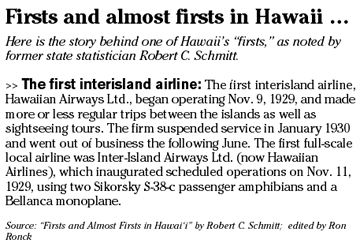|
Business Briefs
|

NATION
Companies down about high oil prices
Pricey oil is certainly exacting a toll on consumer finances, but it's also affecting the nation's companies, according to a survey of corporate finance chiefs.Almost three-quarters, 74 percent, said they expect the high price of oil to weaken their company's financial performance, and nearly half, 44 percent, said their enterprise is likely to hike prices or fees as a response.
Crude struck a record $59.84 a barrel Friday on the New York Mercantile Exchange, and some analysts have said $60 a barrel is likely for the coming months based on the world's voracious demand.
Two out of every three CEOs foresee higher energy prices helping fuel inflation over the next six months, while 30 percent see prices staying the same and just 4 percent expect prices to drop, according to 101 chief financial officers who responded to a poll conducted by Grant Thornton LLP, the large accounting firm.
These books will not be hot sellers
Lists of hot books are all the rage for many newspapers and trade publications. But have you ever considered tomes destined to be read by only a few -- the anti-Harry Potter, if you will?A new poll from on-demand book publisher Lulu.com just unearthed the top 10 books least likely to become a No. 1 best seller or "hot beach read."
Robert Kiehn, a retired physics professor at the University of Houston, took top honors with his book "Non Equilibrium Systems and Irreversible Processes: Adventures in Applied Topology (Vol. 3)."
"My books are very mathematical texts and if they sold several thousand copies I expect it would be a miracle," Kiehn said.
Among other heavy-hitters: "The School of Hard Knocks: The Evolution of Pension Investing at Eastman Kodak," and "How to Cook a Peacock," a translation of a medieval French cookbook.
Poor managers annoy employees
Complaining about work might almost be considered a national pastime for many Americans, right up there with baseball and beer.But the majority of us (76 percent) like our jobs -- it's just the absurdities we see coming from managers that really mar our work lives, according to a survey of 3.5 million U.S. employees. Among them: excessive bureaucracy, blame-placing, a lack of input about decisions and delays in reaching them.
"Many companies try to place the blame for poor performance on employees or their immediate supervisors," said Jeffrey Saltzman, chief executive of the Sirota Survey Intelligence, from Purchase, N.Y.-based Sirota Consulting.
And while unmotivated workers or incompetent supervisors can be the problem, employees' most widespread frustrations arise from deficiencies in senior and middle management and staff, Saltzman said.
Abundant bureaucracy was cited as the biggest problem by 62 percent, followed by people who focus more effort on assigning blame than on solving problems (59 percent).
E-mail to Business Desk
[News] [Business] [Features] [Sports] [Editorial] [Do It Electric!]
[Classified Ads] [Search] [Subscribe] [Info] [Letter to Editor]
[Feedback]
